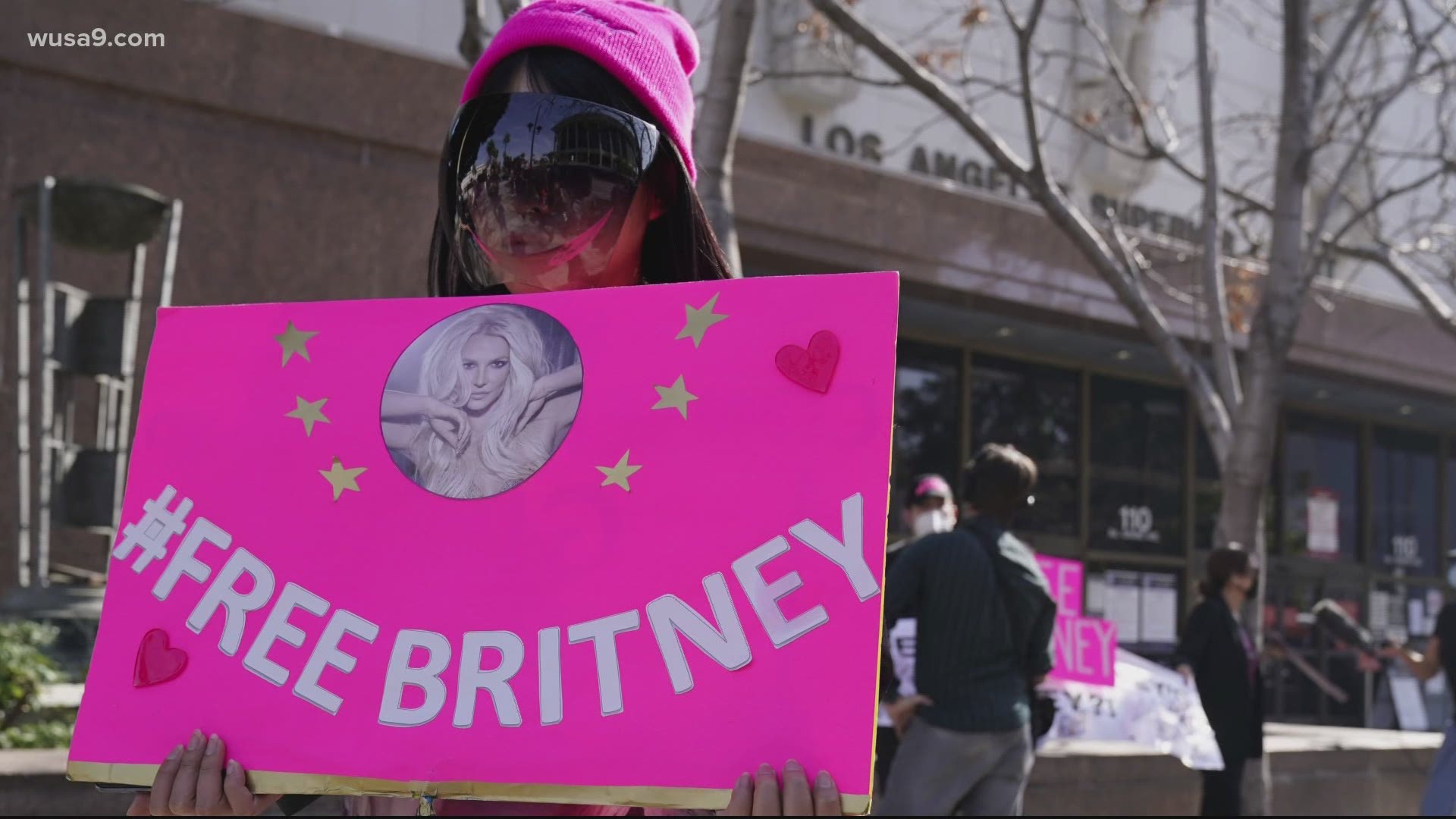WASHINGTON — Have you seen the Netflix movie “I Care A Lot”? Or followed pop star Britney Spears' legal proceedings?
If you answered yes to either of these questions, that might be your first time hearing about conservatorships. Many people have wondered how family members are able to legally be considered a guardian for adults, and how the process to become a conservator works.
QUESTION:
What are conservatorships, and how do they work?
SOURCES:
- Kerri Castellini from the D.C.-based law firm Price Benowitz LLP.
- And Donald Slater from California-based Barr and Young.
PROCESS:
It’s frightening premise for a movie. In Netflix’s "I Care A Lot," the main character makes a living by taking legal guardianship of aging adults. Then turns around and profits off them.
In real life, there’s the saga of pop star Britney Spears. Her father has made financial decisions for her since 2008. The story was recently highlighted in the documentary, "Framing Britney Spears," and Spears herself got her day in court on June 23rd to tell her story.
Her saga showcases a little-known section of legal system called conservatorships.
“A (conservatorship is a) court administration proceeding that's invoked when somebody can no longer make financial or health decisions for themselves," Castellini said.
"That's necessary when someone loses the ability to make sound financial decisions or sound decisions for their own personal care," Slater explained.
A conservatorship is not simple to obtain.
In the event of a perceived mental or physical decline in a person called the “ward," a family member, medical professional, or the even the ward themselves will look to the court to grant a conservatorship.
In that proceeding, the ward gets their own attorney...
"Whose job it is to to consult with them to work on their behalf. They'll have the opportunity to object to the proceedings or to present their own side of the argument," Castellini said.
But even after a conservatorship is granted, that isn't the end of the saga.
Once it's granted, the conservator has to account for every cent the conservator spends, every year or two.
During those reviews, the attorney for the ward can raise concerns.
If they choose, they can even petition for the conservatorship to be removed, and bring in experts to testify why.
That's what Spears had the opportunity to do on June 23rd. She spoke to the Los Angeles Superior Court. She detailed the "abusive" events her conservators, including her own father, put her though, including having her implanted with an intrauterine device (IUD) to prevent her from having children.
“This conservatorship is doing me way more harm than good,” the 39-year-old Spears said. “I deserve to have a life."
Both attorneys we spoke with agreed that, despite some cases of abuse, the legal system has numerous safeguards to protect their wards.
“(The process) affords the most amount of rights in the most amount of say, as they possibly can in those situations to allow the person that's incapacitated to have some kind of say in the process and a conservator themselves,” Castellini said.
When it comes to these public stories, both attorneys said it's important to remember the public doesn’t see a majority of the hearings, the medical history, or even some of the evidence.
As concerning as the stories might be, it’s difficult for people -- including attorneys -- outside of the courtroom to comment.












